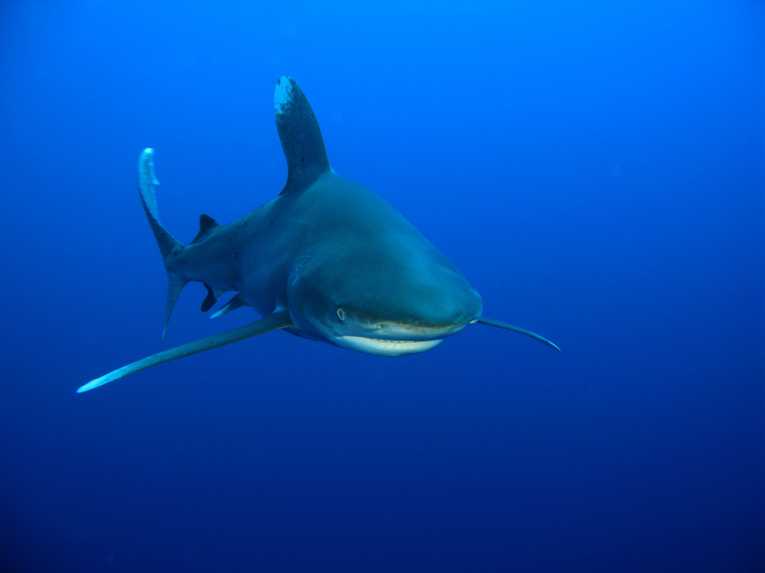For generations very few people bothered much about looking after the world around them. The general feeling was that since the world was full of a multitude of resources, they were just there, waiting to be taken. Nobody considered the fact that one day some of them might begin to run out.
It was only when it was brought home to people that the world's oil supply was finite and that reserves could well run out within their own lifetimes, that they began to wakeup to the fact that perhaps they ought to be doing something about other world resources.
In the mid to late 1980s governments eventually began to show interest and in November 1988 the United Nations convened an Ad Hoc Working Group of Experts on Biological Diversity. This led to a conference held in Nairobi in 1991 that culminated in the adoption of the Convention on Biological Diversity on 22nd May.
This was then presented for signing at the UN Conference on Environment and Development held in Rio the following month. 172 governments participated, with 108 sending their head of state. This has since become known as the Rio Earth Summit.
The Convention came into force on 29th December 1993 and for the next eight years this was designated International Day for Biological Diversity but in 2001, due to the large number of holidays in late December, it was decided to change the date to 22nd May to coincide with the Convention's original adoption and this has been the date ever since.
On this anniversary a wide range of events take place throughout the world with the aim to increase the understanding of the importance of the role that biodiversity has in our future.
This year the focus is on Marine Biodiversity.
The oceans of the world make up about three quarters of the Earth's surface and for generations they were regarded as little more than a convenient source of food or as a convenient dumping ground. Navies around the world found it cheaper and much more convenient to sink their redundant ships rather than send them to the breakers yard and the standard practice for oil tankers was to flush their tanks and dump the resulting sludge into the sea.
Other waste included domestic household waste and even nuclear waste, with trash from ships in transit simply being thrown over the side.
Eventually some of these practices began to be questioned and restrictions were put in place, but in fairness many of these were as a result of commercial rather than environmental issues. Damage to fishing grounds and to the tourist trade following pollution of beaches were a major driving force.
In spite of the world's oceanic vastness, very little was actually known about what they contained. A major study involving 2,700 scientists from over 80 nations spent ten years for 2000 to 2010 trying to find out just how much life there is in the sea.
Dubbed the Census of Marine Life, 540 expeditions studied different aspects of the oceans and as a result 1,200 additional species have been added to the existing list. Scientists are also wading through a further 5,000 specimens to determine whether these are also newly discovered species.
The estimate of known marine species now stands at 250,000, but the team suggest that the final figure could be at least a million, while some scientist think that it could be double this.
The challenges facing marine biodiversity are unprecedented. Human impact on coastal areas has destroyed 65% of seagrass and wetland habitat, as well as degrading water quality and accelerating species invasion. It is estimated that 19% of the world's coral reefs have already been lost and 35% are under serious threat.
Roughly 8% of the world's marine fish stocks are now fully exploited or overexploited and it has been estimated that 75% of all the oceans' mega fauna, large animals such as whales, dolphins, sharks, rays and turtles, have been lost.
Some species, such as the whitetip shark, the American sawfish and the once "common" skate, have declined by as much as 99%. By the end of the 20th century, now 12 years ago, just about the only areas still untouched by commercial fishing were those deeper than 3,000 feet.
The picture is bad, but until now nobody knew quite how bad. In an effort to assess the true picture, a group of around 65 ocean experts and scientists have been collaborating to produce an Ocean Health Index that will establish a new world standard of measurement.
The first Index will be released early in June 2012 and indicators will be recalculated annually or whenever new data becomes available. This will hopefully bring home to people the desperate nature of the problems facing marine diversity, but the answer is in the hands of world decision makers who must urgently take positive and dramatic action to improve ocean governance and health.
This will all form part of a general raising of awareness that hopefully will be generated by the International Day for Biological Diversity on 22nd May.















